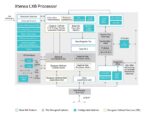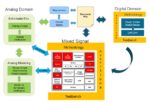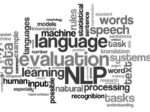Unreachability (UNR) analysis, finding and definitively proving that certain states in a design cannot possibly be covered in testing, should be a wildly popular component in all verification plans. When the coverage needle stubbornly refuses to move, where should you focus testing creativity while avoiding provably untestable… Read More
Tag: bernard murphy
Synopsys Panel Updates on the State of Multi-Die Systems
Synopsys recently hosted a cross-industry panel on the state of multi-die systems which I found interesting not least for its relevance to the rapid acceleration in AI-centric hardware. More on that below. Panelists, all with significant roles in multi-die systems, were Shekhar Kapoor (Senior Director of Product Management,… Read More
Can Generative AI Recharge Phone Markets?
Consensus on smartphone markets hovers somewhere between slight decline and slight growth indicating lack of obvious drivers for more robust growth. As a business opportunity this unappealing state is somewhat offset by sheer volume ($500B in 2023 according to one source) but we’re already close to peak adoption outside of … Read More
Assertion Synthesis Through LLM. Innovation in Verification
Assertion based verification is a very productive way to catch bugs, however assertions are hard enough to write that assertion-based coverage is not as extensive as it could be. Is there a way to simplify developing assertions to aid in increasing that coverage? Paul Cunningham (Senior VP/GM, Verification at Cadence), Raúl … Read More
Fast Path to Baby Llama BringUp at the Edge
Tis the season for transformer-centric articles apparently – this is my third within a month. Clearly this is a domain with both great opportunities and challenges: extending large language model (LLM) potential to new edge products and revenue opportunities, with unbounded applications and volumes yet challenges in meeting… Read More
Cadence Tensilica Spins Next Upgrade to LX Architecture
When considering SoC architectures it is easy to become trapped in simple narratives. These assume the center of compute revolves around a central core or core cluster, typically Arm, more recently perhaps a RISC-V option. Throw in an accelerator or two and the rest is detail. But for today’s competitive products that view is a … Read More
Inference Efficiency in Performance, Power, Area, Scalability
Support for AI at the edge has prompted a good deal of innovation in accelerators, initially in CNNs, evolving to DNNs and RNNs (convolutional neural nets, deep neural nets, and recurrent neural nets). Most recently, the transformer technology behind the craze in large language models is proving to have important relevance at… Read More
Chiplets and IP and the Trust Problem
Perforce recently hosted a webinar on “IP Lifecycle Management for Chiplet-Based SoCs”, presented by Simon Butler, the GM for the Methodics IPLM BU. The central theme was trust, for IPs as much as chiplets. How can an IP/chiplet consumer trust that what they receive has not been compromised somewhere in the value chain from initial… Read More
Mixed Signal Verification is Growing in Importance
I have historically avoided mixed signal topics, assuming they decouple from digital and can be left to the experts. That simple view no longer holds water. Analog and digital are becoming more closely linked through control loops and datapaths, requiring a careful balancing act in verification between performance, accuracy… Read More
Fitting GPT into Edge Devices, Why and How
It is tempting to think that everything GPT-related is just chasing the publicity bandwagon and that articles on the topic, especially with evidently impossible claims (as in this case), are simply clickbait. In fact, there are practical reasons for hosting at least a subset of these large language models (LLMs) on edge devices… Read More











